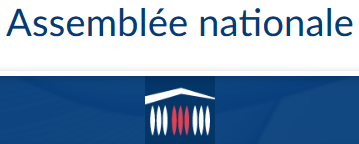Document type : Information Report to the French National Assembly
Authors: French Assemblée Nationale, Commission des Affaires européennes sur la protection du bien-être animal au sein de l’Union européenne
Preview: CONCLUSION
The European Union undoubtedly has advanced legislation at its disposal to protect the welfare of animals in the areas of breeding, transport, slaughter and scientific experimentation, even if it now appears crucial that the scientific advances of recent decades should be translated into law.
However, your Rapporteur has noted structural shortcomings in this legislation in a number of respects:
- European legislation on animal welfare is experiencing major difficulties in its implementation. Accordingly, its full implementation would already constitute a major step forward. This is the case in particular for the Directives on "Birds" and the welfare of pigs and for regulations on the transport of live animals;
- some species have no specific legal welfare protection - fish, rabbits, dairy cows, turkeys and ducks in particular. There is an urgent need for the European Union to remedy these shortcomings and to tighten up the legislation for species that do enjoy protection, such as that concerning the castration of pigs and the living conditions of broilers;
- the account taken of the welfare of pets is seriously inadequate, especially with regard to the need to curb the ongoing illegal trade within the European Union and to respond to the health implications of zoonoses in particular ;
- the welfare of wild animals is not regulated apart from where it is associated with hunting and the protection of natural habitats. European legislation on these issues must move forward to reduce the number of derogations undermining its effectiveness. In addition, the presence of wild animals in zoos and dolphinariums must be urgently regulated and it will be important to create a proper status for non-domesticated animals in the wild, whose well-being is not regulated by the European system. The European Union must also step up its fight against the trade in ivory, shark fins and all animal-based trafficking;
- consideration of animal welfare issues by the Common Agricultural Policy (CAP) is sorely lacking, despite the fact that this is a key opportunity for European livestock farming. 18 Member States use the second pillar's "animal welfare" measure but use is variable. In particular, not one French region has included provision for this in its countryside development plan. For this reason, your Rapporteur proposes that the CAP should include greater incentives in the second pillar to help farmers cover the costs of the transition to more animal-welfare friendly farms. Your Rapporteur also supports the creation of a Europe-wide "animal welfare" label, relating to the method of production, so that consumers can make spending choices in complete transparency.
In addition, your Rapporteur has pointed out major shortcomings in the application of European regulations, particularly with regard to the transport of live animals. Thus, the full implementation of European legislation would constitute an important step forward. In this respect, Regulation 1/2005 appears to be in need of substantial modernisation and far more systematic controls. More generally, the Member States, who are responsible for carrying out checks relating to European legislation, generally show too little initiative in this area and there is a significant lack of coordination. This is detrimental to the proper implementation of European legislation which could be far more effective if it were properly applied. It is also an obstacle to the proper functioning of the Single Market.
Animal welfare currently constitutes a strong societal expectation in all realms of activity, particularly in agriculture. Farmers should not look on the achievement of animal welfare objectives as a constraint but as an opportunity to help 21st-century farming to move towards better recognition of the work that is carried out by livestock farmers to meet pubic expectations on animal welfare and environmental protection. This could directly contribute to maintaining standards in European agriculture which are already very high compared to the rest of the world.
However, to ensure that this does not constitute an additional burden for farmers, the European Union should also create a more stringent framework for animal welfare conditions in its trade policy. At a time when European farmers are making major efforts to meet the animal welfare objectives set by the European Union, it is inconceivable that it should be possible to import products from animals that have been reared and slaughtered under conditions that fail to meet this same standard.
While the European Union can legitimately claim to have some of the most demanding animal welfare legislation in the world, we must remain vigilant in ensuring that it is effectively applied and updated and that there is close cooperation between Member States. Animal welfare is now a societal issue in its own right and must move forward from a yes/no debate to concentrate on objectives that support both the economy and the values that underpin the European project.






